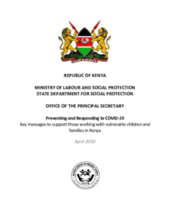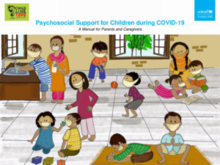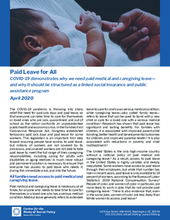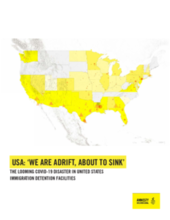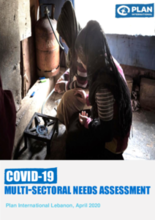Demographic Data
|
Sources: World Bank, UNDP, UNAIDS, DHS 2013 |
Displaying 4421 - 4430 of 14393
This guidance is designed to inform child protection actors in Kenya in light of the COVID-19 crisis. It guides actions targeting, and services provided for, vulnerable children and families, including children living in institutions, children living on the streets, children with disabilities, and others.
This dashboard contains the latest data from UNICEF’s global databases that are relevant to the COVID-19 response for children. Explore country-level data by gender, residence and wealth quintile.
In the context of COVID-19, this manual focuses on psychosocial care of children and prevention of violence in spaces where children stay (child care institutions, families, temporary isolation facilities, NGO shelters, etc.)
This brief from the Center for the Study of Social Policy in the U.S. calls for "a much more robust and permanent solution to ensure that everyone has access to paid leave who needs it, during this immediate crisis, and into the future."
This report from Amnesty International outlines the "reckless response" of U.S. Immigration and Customs Enforcement (ICE) to the COVID-19 crisis, which threatens public health, and calls for the release of immigration detainees.
This report presents insightful findings on the effects of the COVID-19 outbreak in Lebanon, highlighting data collected on COVID-19 knowledge, health, WASH, protection, education, food security and livelihoods, shelter, movement and digital access.
This Guideline aims to further provide technical guidance to child protection workers in Ghana to better respond to child protection risks during the COVID-19 pandemic through case management, including psychosocial support.
Parental opioid use disorder (OUD) is a risk factor for the maltreatment of children and placement into foster care. This brief explores the availability of opioid agonist therapy (OAT) in U.S. counties experiencing different increases in foster care entry rates.
This project aimed to identify factors that might explain the ‘attainment gap’ for Children in Need (CIN) and Children in Care (CIC) in England.
This report describes the experiences of Truth Project participants who were sexually abused in custodial institutions in the UK between the 1950s and 2010s.

